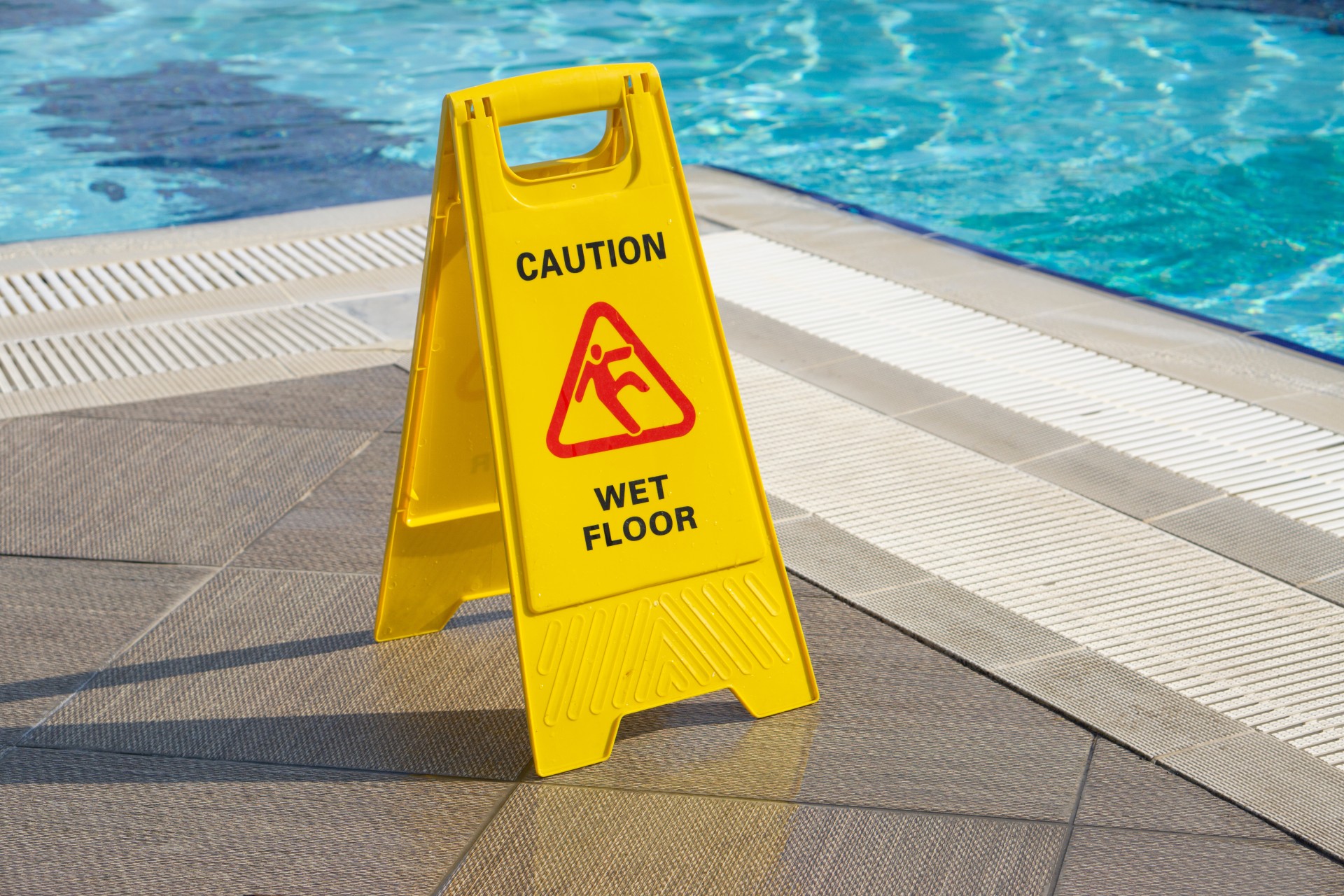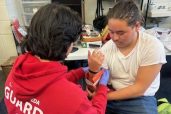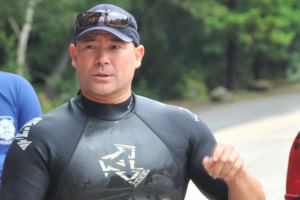It was a beautiful morning and my 77-year-old dad had just finished a friend’s birthday swim. On his way to the locker room, he turned to watch the event finish and suddenly, he was falling backwards, crashing down onto the pool deck. He heard a snap as he landed.
As he lay there, he noticed he could not move his right leg and was in some pain. A lifeguard came over after a few minutes and asked if he was OK. He replied “No!” After a few minutes, more lifeguards showed up to the scene.
My dad was on a concrete pool deck in his wet swim trunks and no one offered a towel or blanket. One guard came over with a wheeled office chair and they lifted him up into it and rolled him across the deck, almost tossing him out going over the bumps. In the locker room, they helped him rinse off, use the facilities and get dressed.
They didn’t know what to do next because he could not drive so finally someone said, “Oh, we should call 911.” You think?!
The EMTs took him to the hospital. We learned he had broken the top part of his hip. By 8 p.m., he had a total hip replacement and could move his leg with minimal pain.
Later, I went to the pool to pick up my dad’s car and talk to the staff. When I asked why they didn’t call 911 right away, I was told “it was not an emergency and they only called because he could not drive himself to the hospital.”
I could not believe it. I have 25 years of experience in aquatics and the first thing you do when someone cannot move an extremity is call 911 for help ASAP. I also asked why they didn’t call his emergency contact, namely, me. They pointed the finger at the swim team, saying it was their responsibility. (I asked the swim team why they didn’t call and they said it was after practice and not their responsibility.)
No one wanted to let on that both the swim team and the lifeguards were not prepared for an incident. Luckily my dad’s friends had my phone number and alerted me around 8am he was in the hospital as well as a text early in the morning.
I wanted to know what the Lifeguard Manual says so I grabbed my book. Page 325 of American Red Cross’ Lifeguarding Manual, printed 2012-2016, states, “The objective is the keep the injured area stable in the position found until EMS personnel take over.”
Luckily, my dad now is 5 weeks post surgery, and cannot wait to get back in the pool.
The Lessons
1. Don’t be afraid to call 911.
2. Train staff to talk to the public as well as how to perform in emergency.
3. Swim clubs should have emergency contact info on hand and the coach should take responsibility for notifying family members when an incident occurs.


